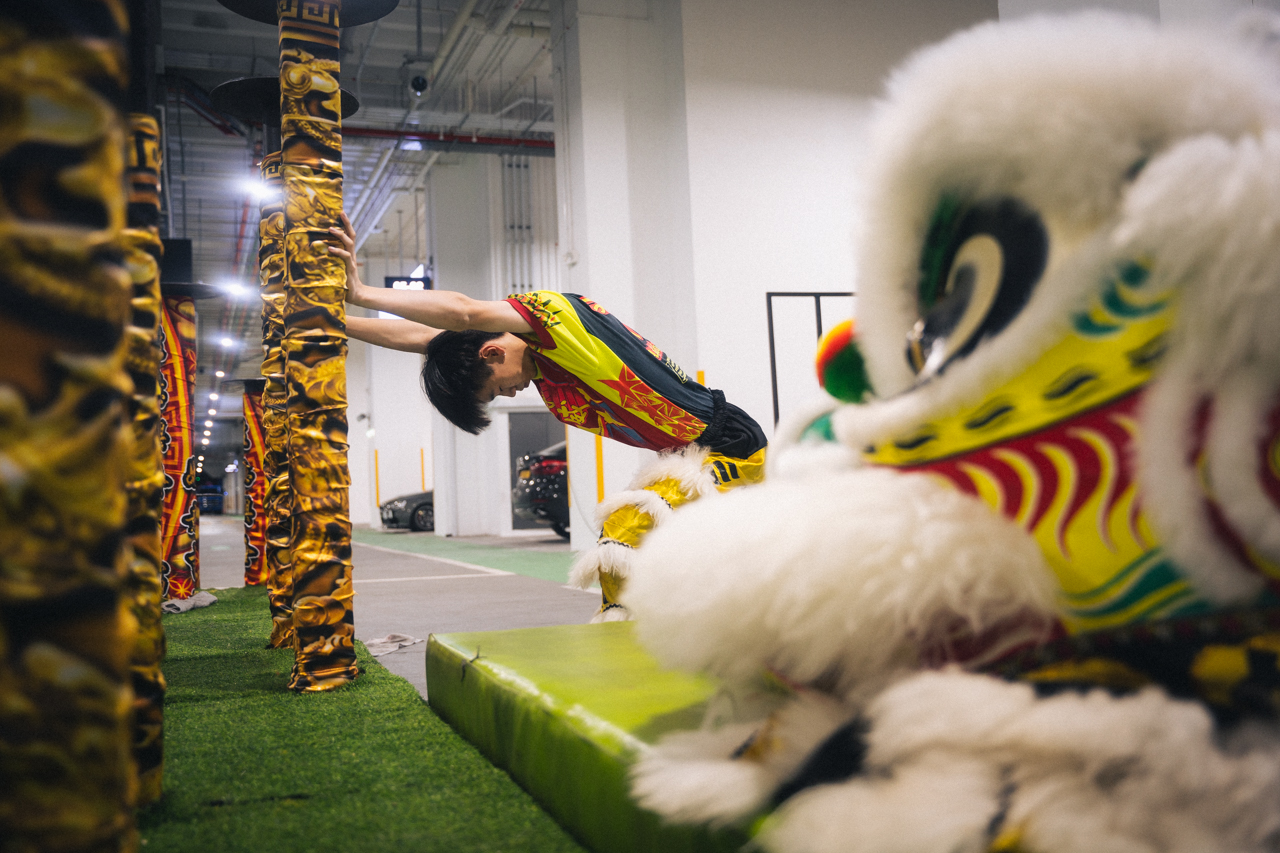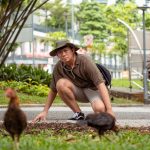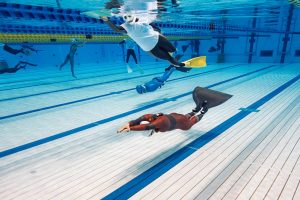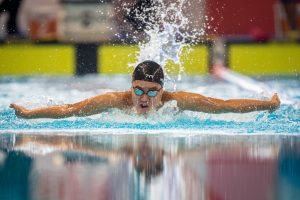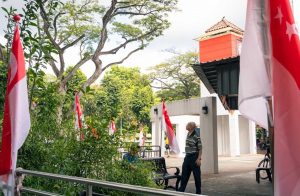All images and videos by Zachary Tang and Stephanie Lee unless otherwise stated
I’m watching a video of a lion dance performance at the Prime Minister’s Cup held in Kuala Lumpur in September 2022.
Singapore-based Yiwei Athletic Association is putting on a stunning show in the regional lion dance championship. Its lion, decked in an impressive sheath of shimmering yellow and gold, deftly hops from one crimson-red high pole to another.
ADVERTISEMENT
Wrapped underneath the lion are two skilled dancers, one propping the other up on his thighs. Ferocious drums reverberate in the background, keeping time as the lion floats gracefully, seemingly weightless, over the high poles.
It’s an impressive display of athleticism and showmanship. A flawless backflip off the poles marks a climactic end to the 10-minute exhibition.
All the while, the signature red-white of the Singapore flag, strategically placed to the side of the towering steel poles, watches over the team. Despite the conspicuous lack of recognition or official support, the Yiwei Athletic Association proudly represents Singapore without conditions.
Yiwei Athletic Association would go on to win this competition, flying Singapore’s flag high for the 20th time since 2008.
This relationship is, unfortunately, one-sided.
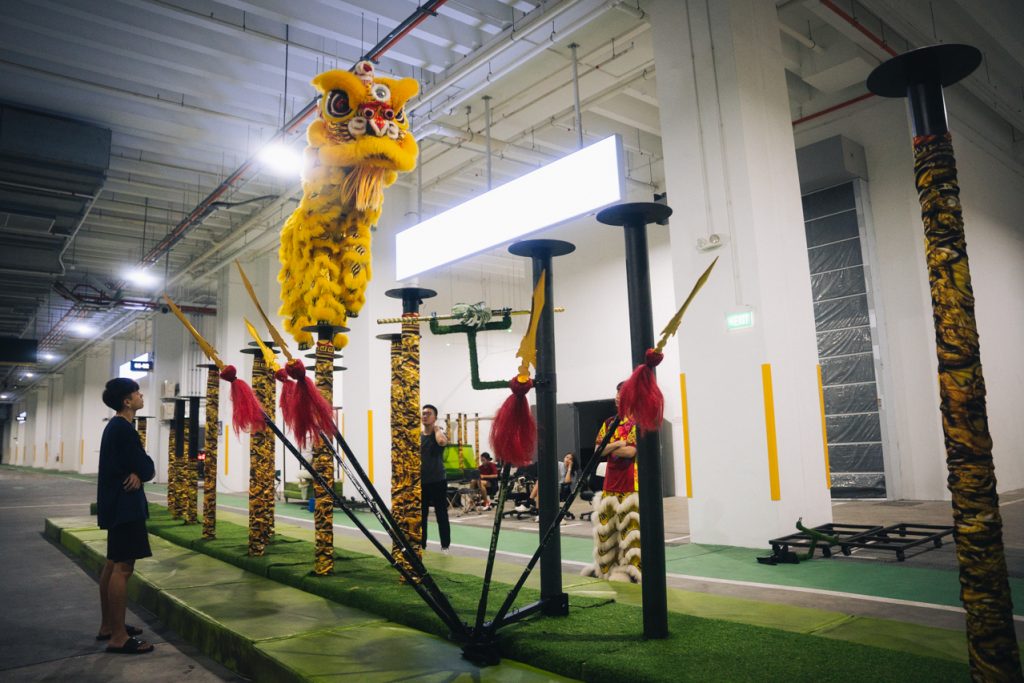
Swashbuckling Lion Dancers
The dazzling display by Yiwei Athletic Association bagged them another first-place finish, beating other award-winning teams from Malaysia, Thailand, Vietnam, and Indonesia.
Out of a perfect ten points, five points are awarded for creativity, and three and two points for movement and expression, respectively. Yiwei’s lion dance troupe scored 9.31 points out of 10 to win the Prime Minister’s Cup.
Their recent win is but another line in the long list of achievements.
ADVERTISEMENT
Despite their storied history of excellence at international competitions, the lion dance troupe is left in the lurch when it comes to due recognition for their sporting achievements. Celebrations happen only within their circles.
“When we represent the country and win, all I can do is hug the trophy at the back of my lorry and celebrate by myself,” Marcus, the head coach and founder of Yiwei Athletic Association, intones.

The Lion Awakes
My colleagues and I visited one of their practices to get a glimpse of the secret sauce behind their award-winning performance.
We were expecting a community club or an association shophouse down one of Chinatown’s many back alleys. Instead, we reached the sprawling parking complex of an industrial building along Defu Street, where the Yiwei Athletic Association trains.
35-year-old Joson, a coach with the lion dance troupe, greets us in the car park. He admits that ulu locations are prime real estate for lion dance troupes looking to train. Only a few lion dance troupes in Singapore are fortunate enough to enjoy the luxuries of space and seclusion.
“We get noise complaints if we train near residential areas. We still get complaints from workers here even though the training is after work hours. But no choice. We need space to set up the high poles,” he explains. The team behind him moves quickly, carrying steel beams and safety mats from a nearby storage unit.
The high poles contain beams of differing heights, between one and three metres. During their routine, the lion dancers are in a perpetual state of precarity—one unfortunate misstep, and the team of two goes tumbling to the ground. I wonder if they have insurance.
The troupe is preparing for their next lion dance competition in Penang, Malaysia, where the troupe has already won twice. Now, they’re gunning for their third.
That’s the last I hear from Joson for the next fifteen minutes. The signature crack of the drums, a familiar sound during Chinese New Year, signals their first round of rehearsals. Pitting my questions against the percussions would be pointless.
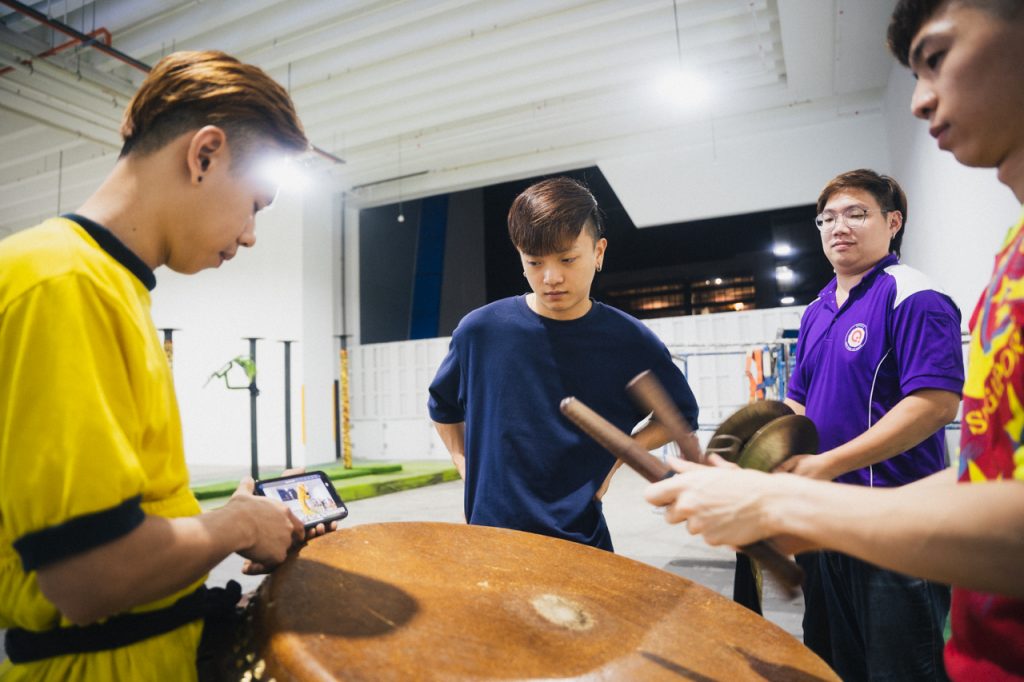
Cultural Artefact or Business First?
Not too far from the pair of dancers is Marcus, the founder and head coach of the Yiwei Athletic Association. He prowls the perimeter of the training area, closely scrutinising the next pair of lion dancers like a school discipline master on the lookout for misbehaving students.
I hesitate to approach. After all, the troupe are training for a competition. Any disturbance, especially in the form of nosey questions, could throw them off their game.
His stoic gaze breaks into a warm smile when I eventually approach him during a break before the next lion dance begins. I only have a few minutes before the drums drown out my voice again.
“It’s not easy (to start a lion dance troupe). The props, equipment, and the lion costs money,” he answers. “You also need a good group of people you can rely on to start the troupe.”
One lion costs between S$1,200 and S$1,500.
The lions used for competitions are customised with troupe colours and are made to size for the lion dancers in that troupe.
Joson estimates that the Yiwei Athletic Association has about 50 lions in their inventory, which, by quick calculation, amounts to S$60,000.
He reveals that a mixture of corporate sponsorships, performance revenue, and competition prize money goes back into financing the troupe’s endeavours.
Lion dancers themselves barely make any money from their pursuit.
“We get some transport allowance only when we are out for performance. Minimum S$20,” he admits. By this point, Joson was sweating so much that I was afraid he was on the verge of dehydration.
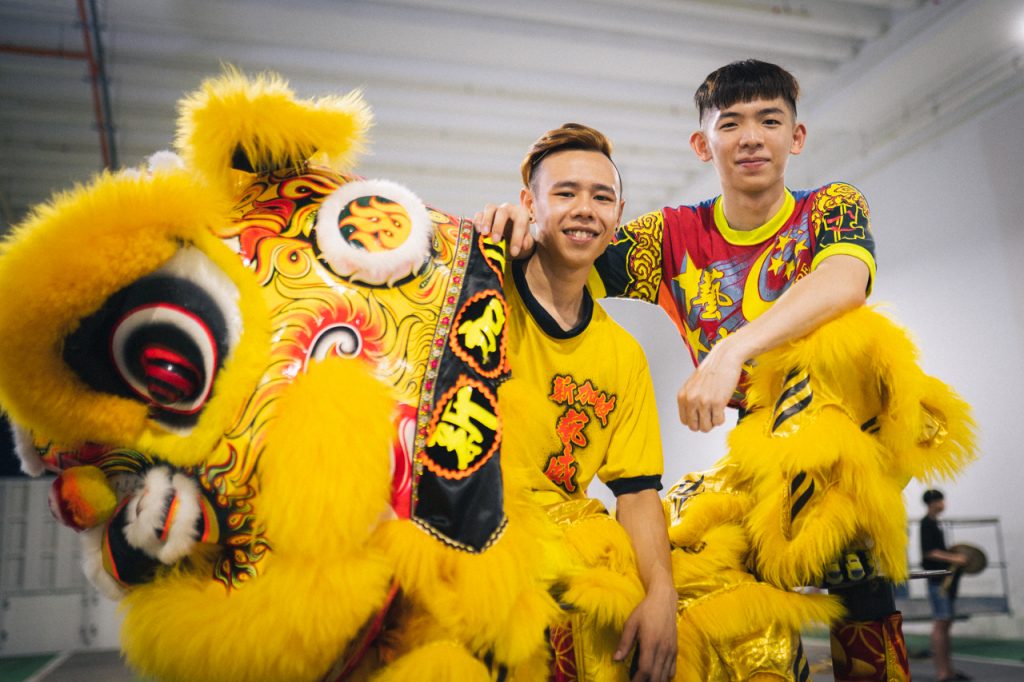
The Mundanity of Excellence
A slick somersault off the poles marks the end of their routine—a crowd favourite which draws raucous applause from competitors and audiences alike.
The lion moves with such an ease that it’s easy to forget that the effortlessness results from precise work—a pair of dancers moving in tandem with each other accompanied by the exacting rhythms of the instrumental players.
Still, effortlessness does not come easy. The troupe trains three times a week—Tuesdays, Thursdays, and Fridays with each training session lasting about two to three hours. In each session, two teams of lion dancers take turns rehearsing their specific routine.
“Every dance has a story to it. It follows a basic structure where the lion has to overcome some obstacles to reach something,” Joson remarks, returning from the high pole set.
When he’s not drumming, he doubles up as a senior of the troupe, commenting and refining the other team’s routines.
Joson has been with the Yiwei Athletic Association for nine years now. He tells me his happiest memory with the troupe was the first lion dance championship win in the 2014 Ngee Ann City National Lion Dance Championship. It would be the first of his many wins with the Yiwei Athletic Association.
Even then, he speaks with humility, driven not by a hunger for more medals but by a desire to perfect his chosen craft.
“Winning is just a bonus for us,” he responds, his gaze fixed on the next pair of lion dancers practising their steps before the next round of rehearsals.
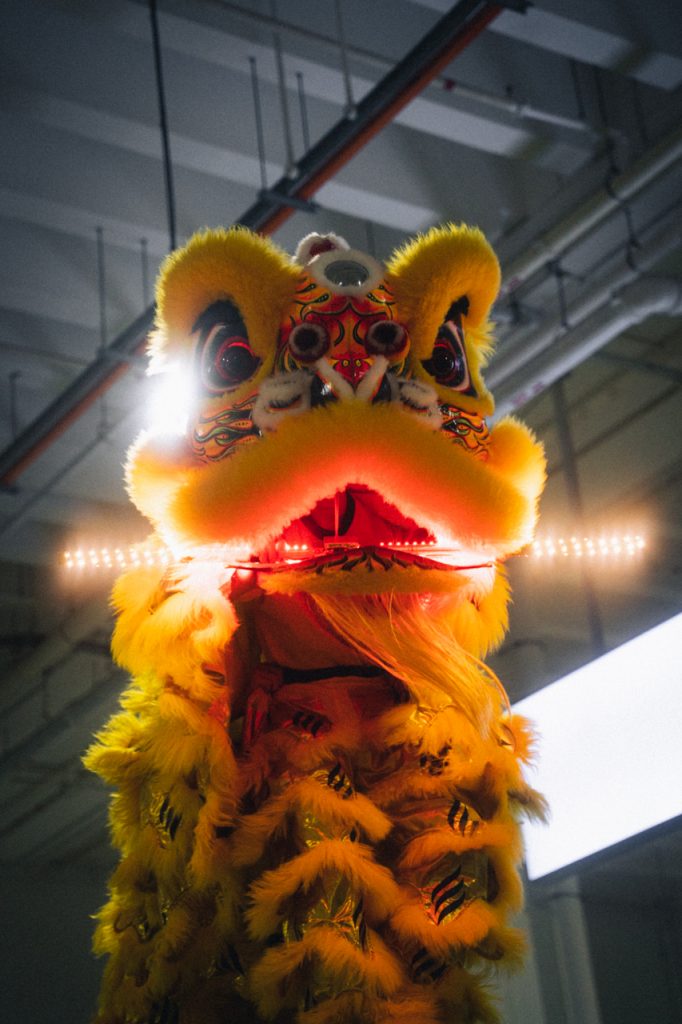
Underappreciated and Underrated
Despite the string of achievements Yiwei Athletic Association and other Singapore-based lion dance troupes amass, recognition and support have been sparse. You just can’t be a professional lion dancer.
“Sometimes it’s hard for performers to take time off to go to competitions because there is little support,” Marcus opines.
No one in Singapore can financially support themselves by being a full-time lion dancer. Marcus himself works in the logistics industry. The rest of the lion dance troupe are students or hold day jobs.
When it comes to competitions, they find themselves having to carve out time to compete—approved time off from work and school is a rarity.
18-year-old Shah, who started lion dance five years ago and has been in Yiwei Athletic Association since 2018, concurs that more support should be given to the lion dance community.
“We train and work hard to represent the country. We rarely have time for dinners with our own family.”
Of course, the lion dance receives episodic attention during Chinese New Year and other religious and cultural festivals. The art form commands reverence and recognition. But the keepers of this cultural artefact? Less so.
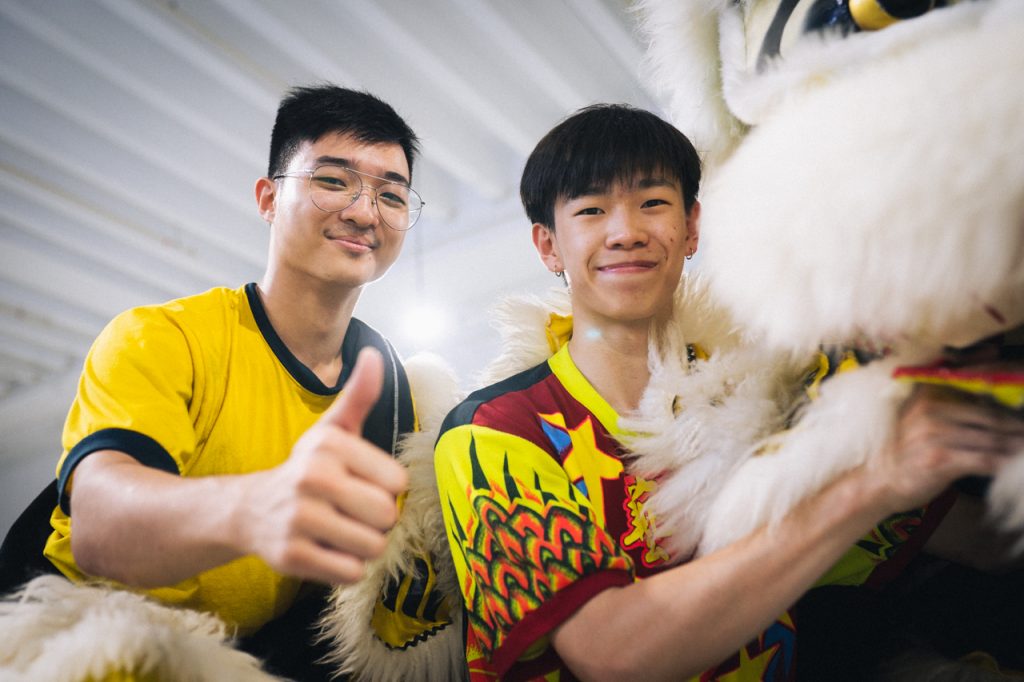
Cultural Favouritism
The aspirations of these lion dancers are not unreasonable by any stretch of the imagination; they want to be recognised for their achievements.
Contrast this with Wushu, a competitive sport at major games which shares the same governing body as lion and dragon dance in Singapore—the Singapore Wushu, Dragon, & Lion Dance Federation.
When we inquired about the types of support lion dance troupes receive from Sport Singapore, we learned that lion dance is not under the organisation’s purview because it does not compete at major games.
Perhaps, that’s why Wushu athletes benefit from funding disbursed by Sport Singapore—it’s a sport that competes in major competitions like the SEA Games.
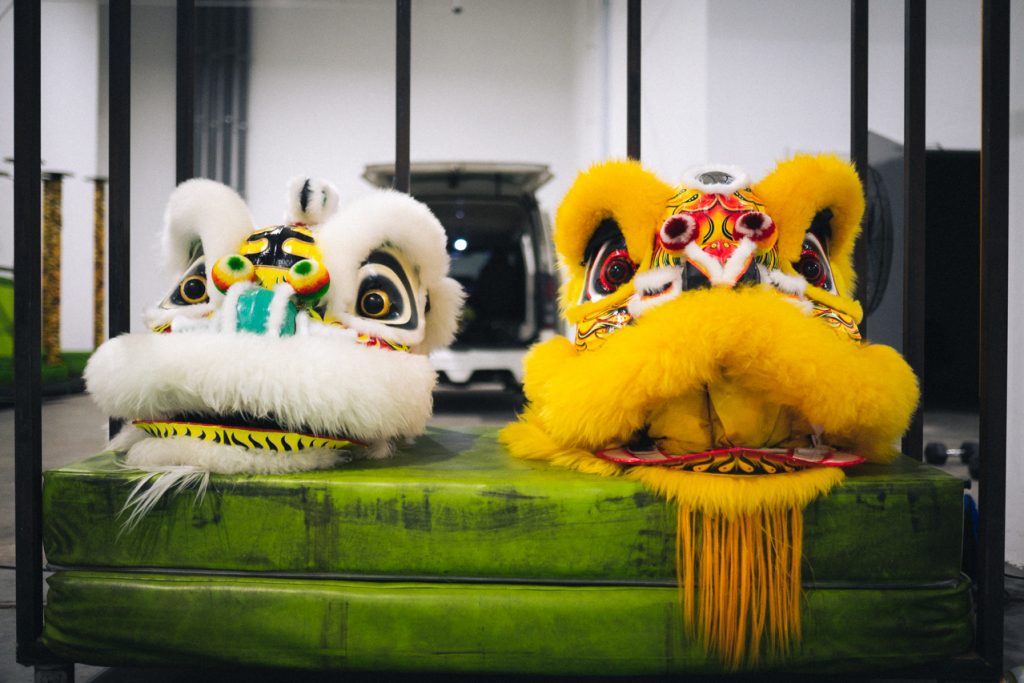
Since the sport of lion dance largely remains at the community level, it is possible that troupes that compete at regional and international competitions do not get a piece of the pie.
Of course, throughout their many wins, the Yiwei Athletic has maintained a financial nest egg robust enough to tide them over the pandemic. Still, funding from an official governing body would be a bonus.
Joson hopes people and the governing bodies would realise that this community-level sport has also brought glory to Singapore, albeit in a slightly muted fashion.
He finds a comfortable spot on one of the green safety mats beside the high poles. It’s the first time I’ve seen him relax during the training session.
“We sacrifice a lot of time with friends and family. We train for long hours. When we come to train, Yiwei becomes a family to us,” he says.
Many lion dance troupes fail the test of time. Gruelling training hours in hot and sweaty conditions take a toll on the body and mind. Troupe members age; rehearsal time is diverted towards career aspirations and family responsibilities.
In late 2018, 265 lion dance troupes formally registered with the Singapore Wushu, Dragon & Lion Dance Federation. It is a marked decrease from 323 troupes in 2016.
The Yiwei Athletic Association is one of the lucky ones. It remains active simply because its members choose to return to the tight-knit community they’ve built.
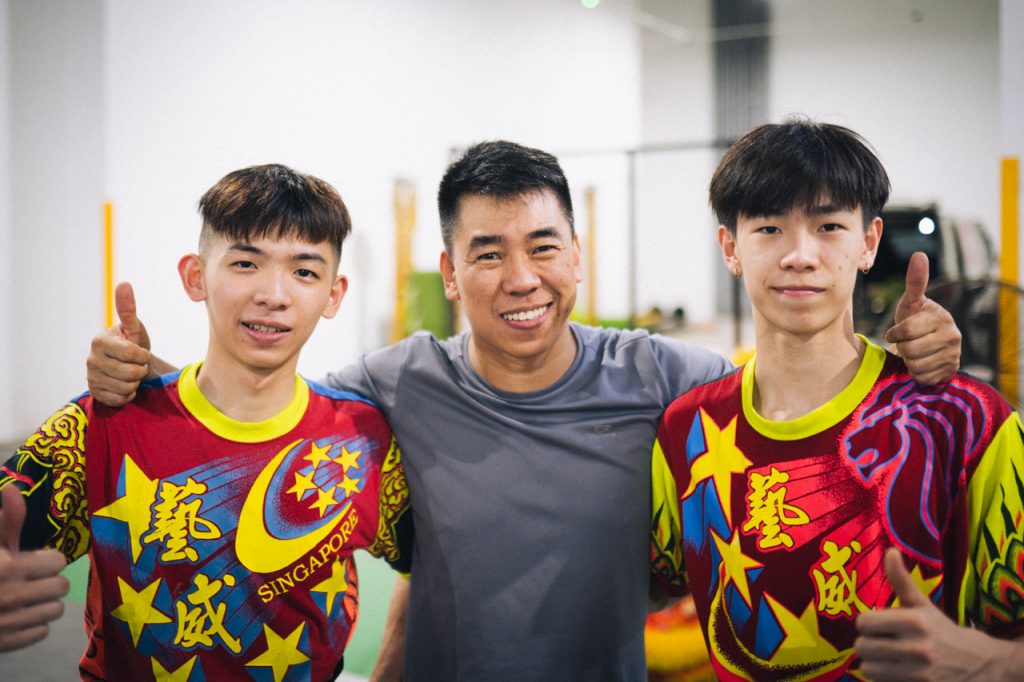
The Curious Intersections of Lion Dance
Whether lion dance troupes can be fully supported by their governing body in equal measures as they do other sports remains to be seen.
Nevertheless, lion dance continues to reflect the significance of Chinese cultural history and beliefs. Considering the physical rigours of the craft, the practitioners are athletes too.
Lion dance is a cultural artefact, performance art, sport—and sometimes, business—all rolled into one. That makes institutional support for lion dance troupes here tricky but also necessary.
Lion dance troupes operate in a decentralised manner. Not all of these troupes compete in competitions, so choosing to fund one award-winning troupe over another may represent a potential headache for policymakers.
While lion dance might never be recognised as a major sport, it does not, in any shape or form, detract from the achievements of the Yiwei Athletic Association.
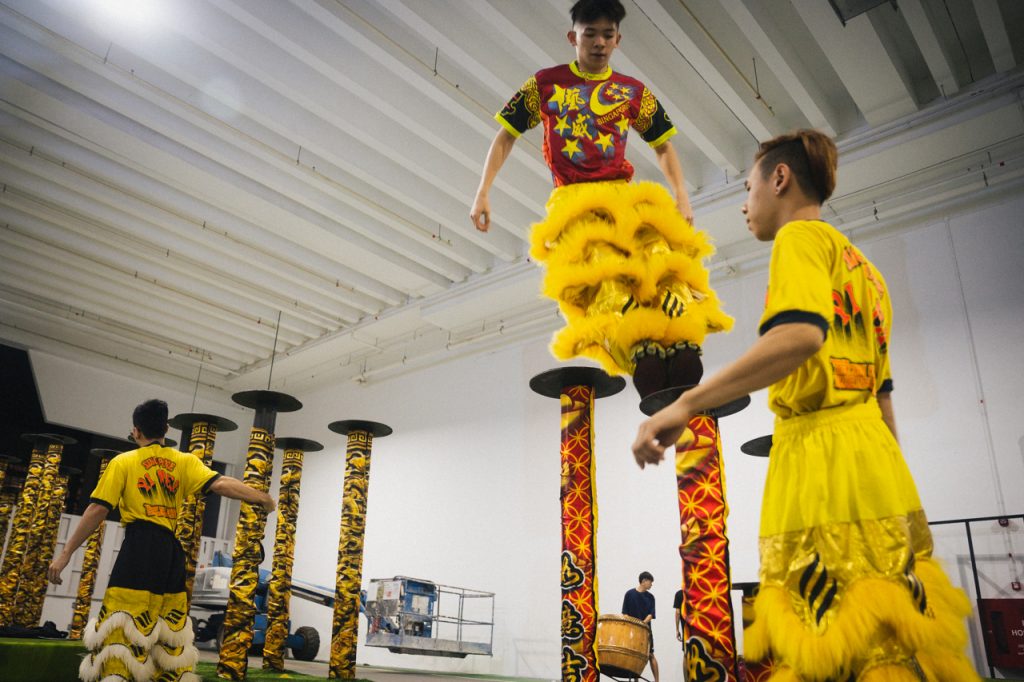
The Lion is Slept On Tonight
We leave the industrial building at nine at night. The carpark, now entirely vacated, transforms into a giant megaphone; the rhythms of the lion dance instrument ensemble bounce off its empty walls and are amplified into the vicinity.
My colleagues and I can still hear rehearsals as we make our way out. It will be another hour before training ends.
“I like lion dance because we are creating memories. When you look back, these are the memories you create with all your friends,” Joson shares as his parting remark.
He exudes a remarkable air of relaxed confidence for someone competing in another country less than twenty-four hours away. Tomorrow, the Yiwei Athletic Association sets off for Penang on the proverbial hunt for its next championship win.
And until Singaporeans like Joson and Marcus hang up their lion heads for good, the art will continue to be a source of pride for Singaporeans and the wider region, uniting the Chinese diaspora across Southeast Asia.
While recognition remains slightly out of reach for lion dance troupes like Yiwei Athletic Association, we are one broader perspective away from allowing this much cherished cultural artefact to be a roaring source of pride for Singaporeans.

